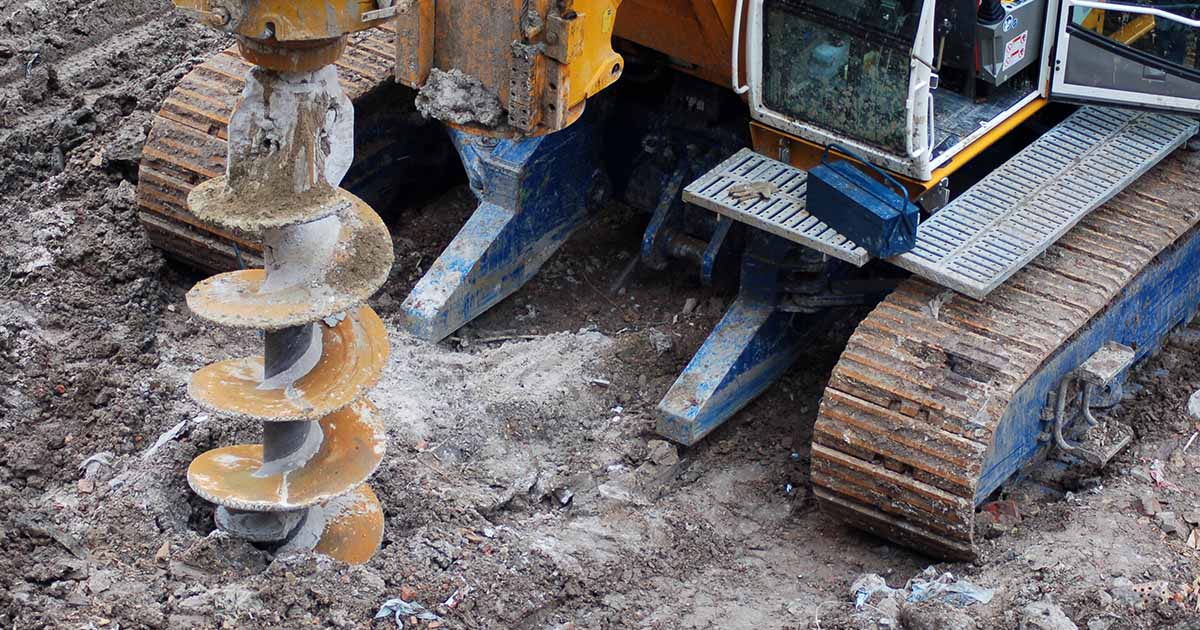
EnviroForensics completed a Spill Pollution Prevention, Control, & Countermeasures (SPCC) Plan to satisfy United States Environmental Protection Agency (US EPA) and Indiana Department of Environmental Management (IDEM) guidelines and requirements for the DeGroate Petroleum oil handling facility. The total aggregate above ground oil storage capacity for the DeGroate facility exceeds 1,320 gallons, requiring an SPCC Plan per US EPA regulation Title 40, Code of Federal Regulations, Part 112 (40 CFR 112).
EnviroForensics completed SPCC work tasks in several phases. Specific information related to the facility, operations, and oil storage activities was requested from DeGroate Petroleum. This information along with construction plans was reviewed by the EnviroForensics project team, and questions were fielded by the appropriate facility representatives. Next, an onsite visit was conducted by EnviroForensics personnel to document site conditions and to review site operations. Finally, the SPCC Plan was completed.
The SPCC Plan was prepared in accordance with good engineering practices under the supervision of a Professional Engineer (P.E.), and included all elements required to maintain regulatory compliance with 40 CFR 112, including:
- Facility information details
- Details of oil storage capacity, tank locations, and handling procedures
- Control measures (such as secondary containment) installed to prevent oil spills from entering navigable water or adjoining shorelines
- Countermeasures to contain, cleanup, and mitigate the effects of an oil spill that has impacted navigable waters or adjoining shorelines
- Onsite personnel training of spill prevention and countermeasures, and records documentation
Once completed, the SPCC Plan was certified by a P.E. licensed in the State of Indiana and provided to the DeGroate Petroleum facility.

EnviroForensics assisted Mobile Drill by conducting a comprehensive regulatory compliance audit for their facility located in Indianapolis, Indiana. The objective was to evaluate the facility-wide environmental management program for adherence to federal, state, and local environmental and health & safety regulations and laws.
EnviroForensics began the audit by conducting a comprehensive inspection of the entire site. An audit checklist was employed in order to ensure that all relevant topics of regulatory concern were examined. The audit checklist consists of the following categories:
- Hazardous Waste;
- Waste Container Management;
- Hazardous Waste Accumulation Areas;
- Compressed Gas/Cylinders;
- Hazardous Waste Recordkeeping;
- Universal and Special Waste;
- Hazardous Materials (HAZMAT);
- Solid Waste;
- Storage Tanks;
- Water Quality;
- Natural Resource Areas;
- Pollution Prevention;
- Air Quality; and
- Environmental Management
EnviroForensics reviewed relevant permits, standard operating procedures, and paperwork associated with these categories, and interviewed key facility personnel for purposes of obtaining additional information and clarification.
Based on the audit, compliance issues were noted and discussed with the client, along with associated remedies and required actions to achieve full regulatory compliance. A formal written report was issued following these discussions. This report included recommended actions for future compliance and improvements with respect to environmental management program.

EnviroForensics completed a Spill Pollution Prevention, Control, & Countermeasures (SPCC) Plan to satisfy United States Environmental Protection Agency (US EPA) and Indiana Department of Environmental Management (IDEM) guidelines and requirements for the newly constructed JM Reynolds oil handling facility located in Wabash, Indiana. The total aggregate above ground oil storage capacity for the JM Reynolds facility exceeds 1,320 gallons, requiring an SPCC Plan per US EPA regulation Title 40, Code of Federal Regulations, Part 112 (40 CFR 112).
EnviroForensics completed SPCC work tasks in several phases. Specific information related to the facility, operations, and oil storage activities was requested from JM Reynolds. This information along with construction plans was reviewed by EnviroForensics, and questions were fielded by JM Reynolds representatives. Next, an onsite visit was conducted by EnviroForensics personnel to document site conditions and to get a better understanding of site operations. Finally, the SPCC Plan was completed.
The SPCC Plan was prepared in accordance with good engineering practices under the supervision of a Professional Engineer (P.E.), and included all elements required to maintain regulatory compliance with 40 CFR 112, including:
- Facility information details;
- Details of oil storage capacity, tank locations, and handling procedures;
- Control measures (such as secondary containment) installed to prevent oil spills from entering navigable water or adjoining shorelines;
- Countermeasures to contain, cleanup, and mitigate the effects of an oil spill that has impacted navigable waters or adjoining shorelines; and
- Onsite personnel training of spill prevention and countermeasures, and records documentation.
Once completed, the SPCC Plan was certified by a P.E. licensed in the State of Indiana and provided to the JM Reynolds facility.


